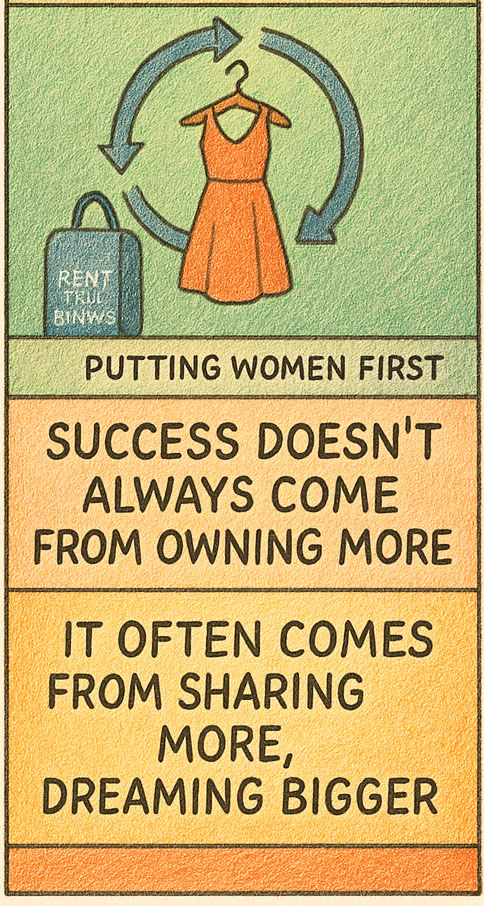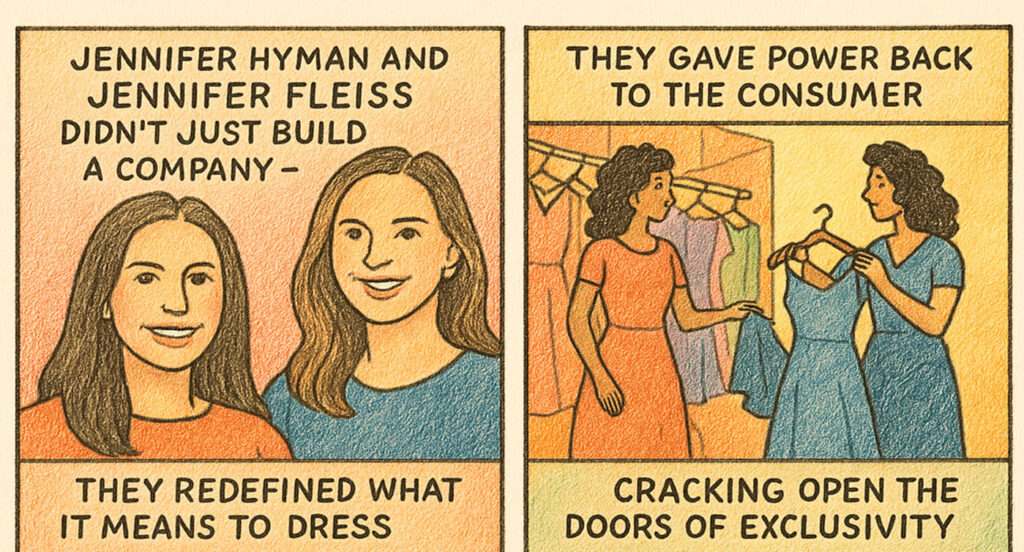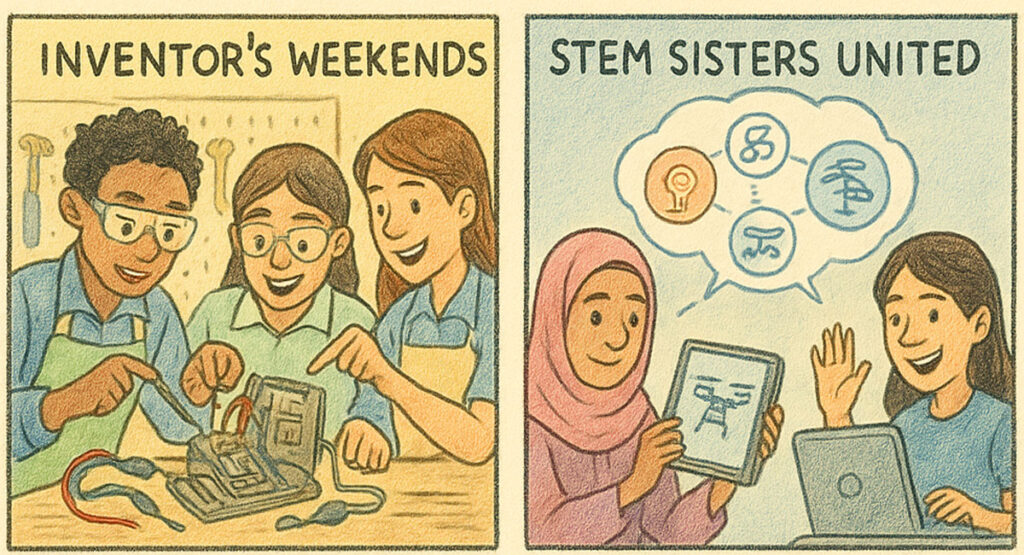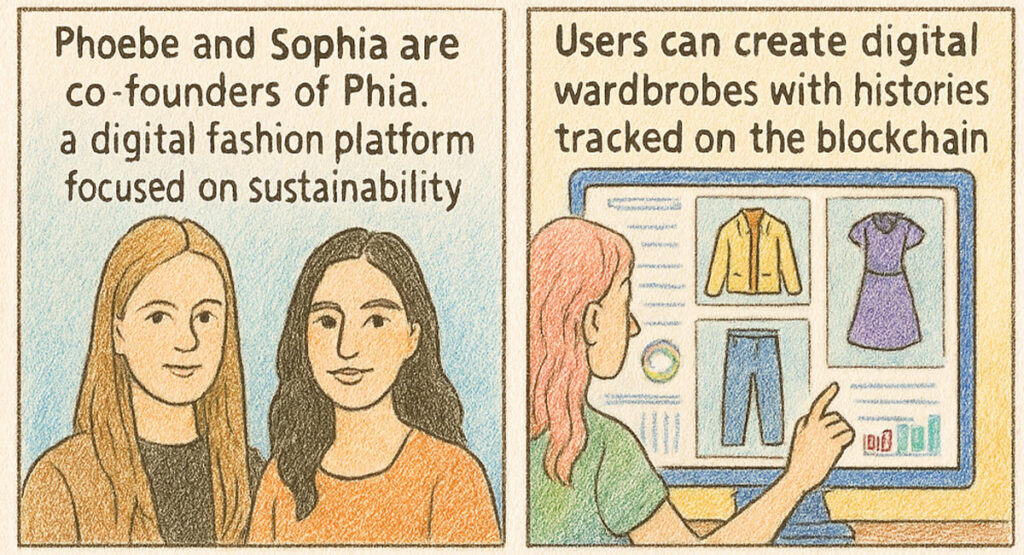Jennifer Hyman and Jennifer Fleiss, two visionaries bound by a shared belief in transforming the way people consume fashion, began their journey not with a love for couture, but with a problem to solve. It was during their time at Harvard Business School that inspiration struck—not from a textbook, but from a personal dilemma. Jennifer Hyman’s younger sister needed a designer dress for a wedding but couldn’t justify the high cost of something she would only wear once. That moment sparked an idea—what if luxury fashion could be experienced, not owned?
Together, Jennifer Hyman and Jennifer Fleiss turned that simple question into a bold new business model. They co-founded Rent the Runway, a platform that disrupted the fashion industry by allowing women to rent high-end clothing and accessories at a fraction of the retail cost. They weren’t just launching a startup—they were pioneering a movement.
In the early days, their pitch was met with skepticism. Could women be convinced to share dresses the same way people shared cars or homes? The fashion elite weren’t sure, and investors raised their eyebrows. But Jennifer and Jennifer were undeterred. They believed in the power of access over ownership, in a future where fashion didn’t have to be wasteful, and in a new kind of luxury that was democratic and sustainable.
Starting from scratch, they built relationships with top designers who saw potential in a rental model that could reach a wider audience. With each collection added, Rent the Runway grew—not just in inventory, but in influence. It became more than a company; it became a cultural shift. Suddenly, wearing something new every weekend wasn’t just possible—it was guilt-free. The fashion rental economy was born.
Their journey wasn’t easy. They faced logistical nightmares, dry-cleaning dilemmas, and technology that had to evolve alongside them. But the two founders were not just building a warehouse of clothes—they were building a brand, a logistics powerhouse, and a platform of empowerment. Women across the country, and eventually around the world, embraced the idea that they could dress boldly without the burden of debt or waste.
Jennifer Hyman stepped into the CEO role, guiding the company’s strategic vision with a fierce passion for female leadership and innovation. She championed the company’s mission at every level—from sustainability to inclusivity. Jennifer Fleiss, meanwhile, brought her sharp operational mind and marketing prowess to the forefront, helping to scale the business with precision and heart.
What began as an idea in a business school classroom blossomed into a multimillion-dollar enterprise. Rent the Runway attracted major investors and grew into a platform with millions of users. It opened physical stores, introduced subscription plans, and evolved with technology, becoming a fully integrated fashion-tech company. But beyond the numbers, it became a symbol of what women can build when they support each other and dream fearlessly.
Their impact extended beyond fashion. Jennifer and Jennifer helped reshape the conversation around consumer behavior. They turned renting into a status symbol, not a compromise. In doing so, they challenged the culture of fast fashion and helped millions rethink their relationship with clothing. The carbon footprint shrank. Closets were decluttered. Confidence soared.
Both Jennifers became role models for a new generation of female entrepreneurs. They showed that leadership isn’t about following traditional paths—it’s about creating new ones. They broke into boardrooms and became advocates for more women at the top. They shared their experiences not just as founders, but as women navigating the tech and fashion industries, often under scrutiny but always with grace and grit.
Their success was never just about revenue. It was about redefining value. They believed value lies not in how many things you own, but in how many experiences you can unlock—and how sustainable those experiences can be for both the planet and the person.
Today, Rent the Runway stands as a monument to reinvention, resilience, and the power of two women who dared to ask “what if?” and then built a future around the answer. Jennifer Hyman and Jennifer Fleiss didn’t just popularize fashion rentals—they empowered a movement toward conscious consumerism, smart business, and the belief that fashion can be both fabulous and forward-thinking.
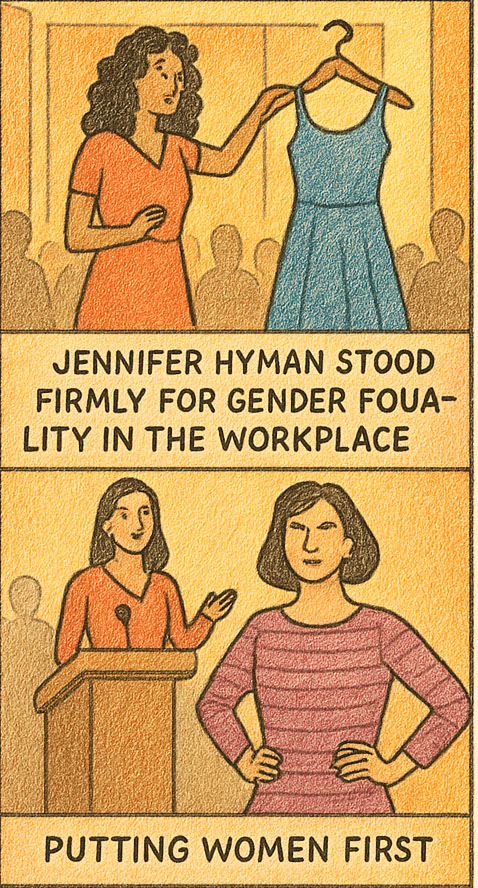
Jennifer Hyman and Jennifer Fleiss didn’t just build a company—they redefined what it means to dress with purpose. One of the most inspiring parts of their story is how they gave power back to the consumer. In a world where designer fashion once belonged only to the elite, they cracked open the doors of exclusivity and made runway looks available to every woman who had a dream event, a bold vision, or simply wanted to feel powerful in her own skin.
Their mission extended far beyond dresses. They ignited conversations about identity, sustainability, and the meaning of luxury. For years, women were sold the idea that status came from owning things. But Jennifer and Jennifer proved that status could come from how smartly you access, style, and live. That shift in mindset created a ripple effect—one that is still changing industries today.
They also sparked a sustainability revolution. While the fashion industry has long been a major contributor to environmental damage, Rent the Runway offered a radical solution. By creating a circular fashion economy, they gave clothes multiple lives and cut down on waste. It wasn’t just eco-friendly—it was empowering. Each rented dress became a story of renewal, a step toward conscious fashion, and a symbol of innovation over indulgence.
They championed the concept that women don’t need to compromise between fashion and values. With Rent the Runway, you could embrace both. Wear the suit that makes you feel like a CEO, the gown that brings you confidence, or the jacket that tells the world you’ve arrived—without the guilt of waste or overspending. This wasn’t just wardrobe access—it was transformation at every zipper and seam.
Jennifer Hyman stood firmly for gender equality in the workplace. She advocated for parental leave, inclusive leadership, and policies that put women first—not just in fashion, but in boardrooms. She used her platform to make sure the company culture reflected the empowerment they sold. And Jennifer Fleiss, after her time at Rent the Runway, went on to explore new ventures, proving that the entrepreneurial spirit is not limited to one success, but a lifelong mission to innovate.
Their journey also opened a door for technology in fashion. They embraced data science to predict trends, machine learning to manage logistics, and AI to personalize wardrobes. In doing so, they didn’t just change how women dressed—they reimagined how tech could serve lifestyle. This merging of data and design turned fashion into something smarter, faster, and more meaningful.
Another inspiring angle is their resilience. As female founders in a male-dominated investor world, they faced countless rejections. But instead of backing down, they leaned in harder. Every “no” they received became fuel for a stronger “yes.” They shattered ceilings not with noise, but with results. They built a billion-dollar brand rooted in empathy, strategy, and relentless passion.
They also created a space where self-expression wasn’t dictated by a price tag. Women who once hesitated to try bold colors, daring styles, or high-fashion silhouettes found a home in Rent the Runway’s offerings. They were invited to experiment, to discover, and to evolve. That kind of fashion liberation doesn’t just change how you look—it changes how you live.
Through it all, Jennifer and Jennifer stayed focused on the people. Every dress shipped was a love letter to a milestone: a job interview, a first date, a wedding, a graduation. They understood that clothing isn’t just fabric—it’s armor, it’s celebration, it’s confidence stitched into cotton. And they honored that with every decision.
Their story teaches us that you don’t need to inherit a legacy—you can build one. You don’t need to wait for a seat at the table—you can design your own table and invite the world to join. And most importantly, success doesn’t always come from owning more—it often comes from sharing more, dreaming bigger, and believing that fashion can be a tool for freedom, not pressure.
